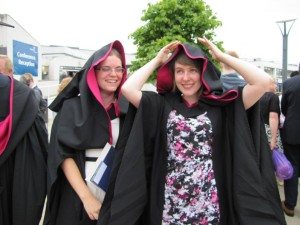Confessions of a publishing intern
[dropcap]A[/dropcap] recent Warwick graduate, Joanna Harwood, speaks about her experiences making a career in the publishing world. Currently an Editorial Acquisitions Intern at Harlequin, Joanna has managed to achieve a number of internships since graduating from Warwick last year. As previous Lifestyle editor of the Boar, she shows what success being a member of the editorial team can bring students!
Boar Books: First of all, how hard did you find it to secure an internship after graduating?
Joanna Harwood: About a month after I left university I had three consecutive internships sorted at various publishing houses. However, I spent most of that month frantically applying for pretty much any position I saw, reading everything I could get my hands on about the industry, and constantly updating my cover letter and CV.
BB: Did you find any particular experience you gained whilst studying especially important?
JH: Publishing is very much an industry where you learn on the job, so as a student, you won’t be able to get all the skills you need to secure a career without a couple of internships under your belt. Once I had decided on publishing as a career, I made sure to get as much editorial experience as possible, which largely came from various exec positions.
BB: Do you think it is more important to focus on getting relevant experience whilst at university than putting all of your effort into your academic work?
JH: Relevant experience is crucial, but as most publishing companies ask for a 2:1 as a minimum education requirement, you definitely shouldn’t neglect your studies! Use your time at university to the fullest advantage: start looking for experience before the finalist panic sets in!
BB: What would you advise to people who are looking to crack the tough nut of the publishing world but can’t seem to get any publishing specific experience?
JH: Make your own experience! An internship is not the only way to get experience; there are plenty of other opportunities to boost your CV. For example, in my final year I persuaded the history staff to let me rewrite the guide to their term in Venice. This gave me six months of editorial and managerial experience – plenty of good material for any CV! If you’re struggling to get an internship, look for opportunities to produce a relevant project, or apply for an exec position.
 BB: What impact do you think being the Lifestyle Editor for the Boar has on your career prospects in the publishing world?
BB: What impact do you think being the Lifestyle Editor for the Boar has on your career prospects in the publishing world?
JH: It’s been very helpful! My time as Lifestyle Editor helped me to develop all kinds of skills used in publishing, and it definitely helped me make the right career choice. That said, editing for journalism and editing for books are two very different career paths. The Boar was a brilliant starting point, but I had to make sure that I had some solid books-based editorial work under my belt as well.
BB: What course did you study? Did you find that it was in any way particularly helpful for this career path?
JH: I was a history student, which proved useful in that it gave me a good eye for detail and the ability to absorb a lot of information quickly.
BB: What advice would you give to finalists who are looking to be in a position at a publishing firm within the next year?
JH: Learn as much as you can about publishing, especially the challenges the industry is facing. Work out what field you want to work in and try and get some relevant experience. Don’t give up! It can be very difficult to secure a publishing job, especially in editorial.
BB: What is it like interning for major companies? Do you feel like you’re playing an important part?
JH: It depends on the company and the type of internship you have. If your internship only lasts a fortnight, you will spend a lot of that time standing by the photocopier. But if your internship lasts a few months, you’ll have many more opportunities to try your hand at some more difficult tasks!
BB: Is it as hard to get a paid internship in this industry as it is to get it in others?
JH: Paid internships are very hard to come by. Most large publishing houses will offer travel and lunch expenses, but these are often subject to a price cap, and don’t always cover travel outside of the London area. As most publishing houses are based in London, this can get very expensive very quickly!

Comments (1)